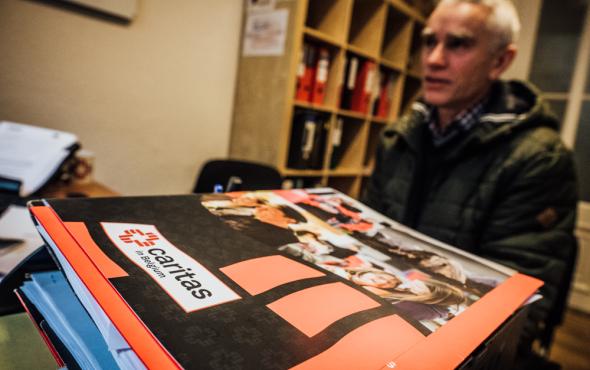
A return made possible
The coronavirus crisis had just erupted when Aleksander's family returned to Georgia. Solutions had to be found to ensure they could return.
Aleksander, his wife and their children, arrived in France in 2018. After more than a year of waiting, their asylum application was denied. They then decided to apply for asylum in Belgium, which was not possible under the Dublin Regulation. Instead of having to return to France, they used the voluntary return programme.
The family prepared for their return at the Fedasil centre in Deurne, where they were staying. Caritas International Belgium met them to assess their needs and discuss how to make good use of reintegration assistance.
Locked down
Aleksander's family returned to Georgia in the middle of the lockdown. Travel arrangements were particularly difficult at that time, but seats were found on a humanitarian flight from Amsterdam.
COVID-19 measures meant that the family was forced to remain in quarantine when they arrived in Tbilisi. For two weeks, they were not allowed to leave the hotel room allocated to them. It was only after these two weeks that they were able to leave Tbilisi to return to their village and reunite with their family and community.
A roof over their heads
Aleksander's house had been completely looted and his family robbed during their absence. The priority was therefore to ensure that they had a roof over their heads as soon as possible. They were allocated support for the renovation of their house.
It was not easy to purchase the equipment they needed for the renovations due to the strict health measures in Georgia. They were nevertheless able to quickly install new pipes and repair the windows. This would not have been possible without the help of neighbours and the community.
The staff of Caritas Georgia were also there to help them seek solutions. Despite the health measures, they were able to arrange a meeting with them on their arrival to release part of the budget directly. They also monitored their reintegration, including obtaining medical care.
Adapted Medical assistance
Aleksander's health is not the best: he suffers from diabetes, and hip and heart problems. A budget was specifically allocated for health care (AMAAR support*), so that he could buy the necessary medication. The purchase of a wheelchair and physiotherapy sessions are also planned, but are not available at the moment due to the Covid-19.
As the repairs to their house are taking up more time than expected, the family cannot yet receive an income from a professional activity. But the idea of using some of the support to start a business as a taxi driver or trader is still on the table.
*Adapted Medical Assistance After Return
Source: Caritas International